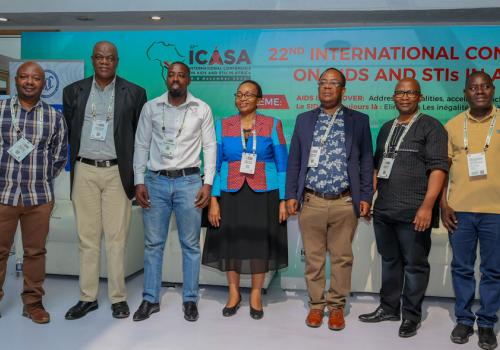SADC Region Reports Remarkable Progress in HIV/AIDS Fight
The Southern African Development Community (SADC) region showcased remarkable progress in the battle against HIV/AIDS during a side event organized by the SADC Secretariat on December 7th, 2023.
The event took place on the sidelines of the 22nd International Conference on AIDS and Sexually Transmitted Infections in Africa (ICASA) in Harare, Zimbabwe.
Ms. Duduzile Simelane, the Director of Social and Human Development at the SADC Secretariat, revealed that the region had witnessed a substantial 57% decline in new HIV infections. Additionally, more than 80% of SADC citizens living with HIV now have access to life-saving treatment.
The ICASA serves as a crucial platform for global leaders, healthcare professionals, and individuals committed to ending the AIDS epidemic.
Ms. Simelane emphasized that the side event provided an opportunity for the SADC Secretariat to highlight its efforts in the fight against HIV/AIDS, exchange best practices, and learn from experiences within the region and beyond.
While acknowledging the progress, Ms. Simelane noted that much work remains. However, AIDS-related deaths in the region have seen a reduction of over 60%.
Notably, four out of the 16 SADC Member States – Botswana, Kingdom of Eswatini, Zimbabwe, and the United Republic of Tanzania – have achieved the UNAIDS 95-95-95 targets ahead of schedule.
This means that 95% of people living with HIV in these Member States know their status, 95% of those aware of their status are on treatment, and 95% of those on treatment have a suppressed viral load.
The SADC Secretariat has played a vital role in managing and administering the regional HIV and AIDS Fund, established under the guidance of the Maseru Declaration.
This fund supports projects and interventions aimed at enhancing the capacity, output, or impact of existing HIV and AIDS programs in Member States.
During the side event, four organizations benefiting from the SADC HIV and AIDS regional fund showcased their interventions. Dr. Tatenda Songore from Youth Advocate Zimbabwe highlighted a project that improved access to integrated HIV services among adolescents and young people through m-Health in Southern Africa.
Other projects included research on the influence of intersectional stigma on Antiretroviral therapy (ART) programs for key population groups and initiatives strengthening comprehensive HIV and AIDS service delivery packages at cross-border sites.
Representatives from Botswana, Kingdom of Eswatini, and Zimbabwe shared their countries’ experiences towards achieving the 95-95-95 target, providing valuable insights into the collaborative efforts shaping the future of HIV/AIDS management in the region.
Source: SADC Secretariat


